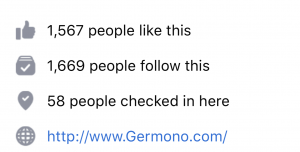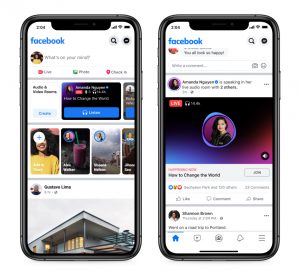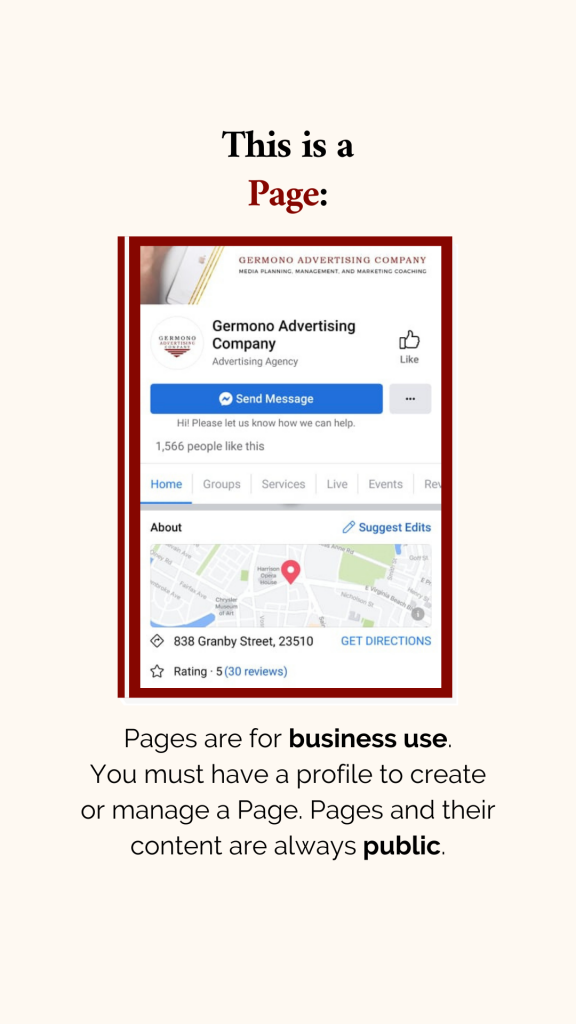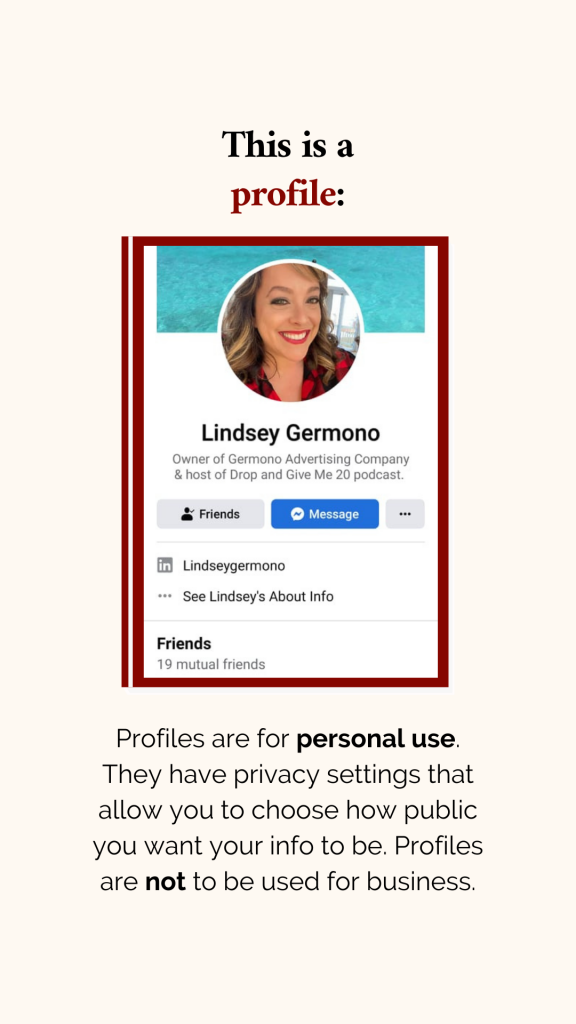
27 Aug Marketing Terminology
By Justice Abbott
If you’ve ever felt stumped on the difference between likes and followers or wondered what reach and impressions tell you about your content, we’re here to put all the pieces together for you! There are so many marketing and social media terms that mean similar things but have little differences that make them each so important.
Facebook Follow vs. Page Like
When you take a look at your business’ Facebook page, you’re likely to see that your page’s follower count is different from your page’s like count. Don’t worry, this is 100% normal and is actually very common. Followers are Facebook are people who may see your page’s updates and posts in their News Feed. But, page likes are people who liked the page but choose to unfollow it because they may not want to see your posts in their News Feed. They’re still demonstrating their support by liking your page which is always a good thing and should be appreciated!
We know what you’re thinking… are page followers or page likes more important? Neither is necessarily more “important” than the other, as both are bringing support and engagement to your page. However, it is safe to say that Facebook followers are the best indicator of who would like to see your page’s posts in their feed.

Facebook Rooms
The ever-evolving world of online features is one of the biggest reasons it’s so hard to stay on top of your terminology. One day, something might be known as one name, and it’s being called something new the next. Social media platforms are also famous for spontaneously removing certain features, but they also love to introduce new ones throughout the year.
This summer Facebook introduced several new audio-centered features, including Live Audio Rooms. Live Audio Rooms are found at the top of your news feed. These “Rooms” allow you to discover, listen in on and join live conversations with public figures, experts, and friends about topics you’re interested in. Public figures can invite friends, followers, verified public figures, or any listeners in the room to be a speaker.
Hosting or being invited as a speaker in a Room is a great opportunity to showcase your professional insights or talk about your business. We recommend taking advantage of this cool new feature to learn more about the topics you’re interested in, converse with mutual users, and even promote your business!
You can find more detailed info on the new Facebook Live Audio Rooms at https://about.fb.com/news/2021/06/live-audio-rooms-and-podcasts-on-facebook…

UGC
As a marketer, we’re almost certain you’ve come across this acronym a few times throughout your career, but do you actually know what it means?
UGC stands for User Generated Content. User Generated Content is considered to be any form of content generated by consumers for a brand or business. This means anything from product reviews to online discussion groups is considered UGC. A lot of businesses rely on positive UGC to promote and bring in more customers because people view it as the most authentic, trustworthy form of marketing as opposed to company-generated marketing.
User-generated content is the truest form of authenticity! This year we’ve been seeing many brands leveraging more images, comments, and feedback from followers enjoying their products or services as content. It’d be advantageous for you to consider UGC and start looking into ways to implement it within your marketing strategies.
Stories
When it comes to social media stories, we aren’t talking about your Peter Pan fairytale. Stories on social media are a fairly “new” element that allows users to post content that is only available for 24 hours. These posts are often less “formal” than actual, regular posts and they sometimes allow you to say more.
When you open the Instagram app, what do you look at first? If it’s stories, then you are in the majority and it’s likely that your business’s followers are doing the same. Instagram reported that one-third of the most viewed stories are ones posted by businesses themselves.
Instagram isn’t the only platform making the most of the popular feature first introduced by Snapchat in 2013. Though less popular on other platforms, you will also see stories on Facebook, LinkedIn, and YouTube. Up until this month, stories were a tool you could see on Twitter as well, and they were known as “fleets”. Twitter did decide to discontinue the fleet feature, but the other leading platforms are still going strong and continuing to elevate their story features.
If you are not utilizing stories for your business accounts, you are leaving a lot on the table!
Reach vs. Impressions
Reach and impressions are two terms we’re sure you’ve seen thrown around in the marketing world every day, but what exactly do they mean and what is the difference, right?
Reach is the number of people who saw your post at least once and impressions are the number of times content from your Page or about your Page entered a person’s screen. Both are helpful to gauge just how well your content is doing with your audience. It’s beneficial to routinely monitor these numbers as they can directly indicate how your posts are performing in comparison to one another.
When checking insights, you should expect your impressions to be higher than reach. This is a good sign that your content and ads are being seen more often.
Page vs. Profile
Page and profile are terms regularly used interchangeably, but they do not actually mean the same thing! A personal profile and business page have different uses and come equipped with different features.
A profile is for personal use. A place where you can share information about yourself, such as your interests, photos, videos, and life events. Profiles have a variety of privacy settings that allow you to choose how public you want your information to be. Profiles are not to be used for business.
Pages are for business use. A place where artists, public figures, businesses, brands, organizations and nonprofits can connect with their fans or customers. When someone likes or follows a Page, they can start seeing updates from that Page in their News Feed. You must have a profile to create or manage a Page. Pages and their content are always public.
As a business owner, you will want a Page to display business hours and contact information, post menus or services, and run ads. But, we always recommend sharing and promotion your business Page to your personal profile… because why not?


That sums it up for our quick little terminology talk. Overall, we’d say there are 6 social media terms business owners need to know:
- Profile versus Page
- Follower versus Like
- Reach versus Impressions
Don’t hesitate to save this blog post to your favorites so you can easily access a “cheat sheet” for any of these important terms.
If you have any questions about any of these or are still stumped on some other terms we didn’t mention, shoot me an email at Justice@Germono.com!
